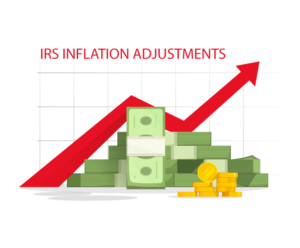Space as a Service (SPaaS) the Next Great Frontier

Monetize space?
Well, yes – many believe that space as a service (SPaaS) is the next great business frontier. Taken from an article By Randy Baron, lead portfolio manager at Pinnacle Associates, Ltd. Pinnacle Associates.
On Thursday February 10th, four tiny NASA-funded satellites were lost on their way to space. These small experimental devices, called cube-sats, had been launched to cheers, especially by employees of Astra Space, whose craft flung the satellites towards the sunlit silence.
But as the rocket’s second stage booster, expected to propel the cube-sats even deeper into orbit, began to spin out of control Astra’s stock price experienced its own gyrations: The share price contraction of this $500 million Special Purpose Acquisition Corporation (SPACE) was so pronounced that the New York Stock Exchange immediately halted trading.
By the end of the week, Astra’s market capitalization had been effectively halved.
Next Great Frontier, or far fetched?
Astra’s recent travails show just how difficult it is to join the club of launch start-ups jockeying to offer cheaper methods of lofting objects into the heavens. These include more established players in the field like:
SpaceX;
Rocket Lab, which has completed two dozen launches from New Zealand since 2018;
Virgin Orbit, the company founded by Richard Branson that drops a rocket from a modified Boeing 747 jumbo jet to reach orbit;
Relativity Space, which will rely on a small 3D-printed rocket called Terran 1.
Many more companies like Astra are aiming to reach orbit and kick off their own commercial satellite launch businesses, and Thursday’s botched trip to the sanctity of space – compounded with the loss of 40 new SpaceX satellites to solar flares just a day or two earlier – highlights the efforts’ daunting challenges.
Yet focusing on Astra’s failure overlooks how far the business of space has come. For decades most things having to do with space revolved around product sales. Of late, new business models have evolved. We are tracking several of these new verticals including Space Data as a Service, Satellite as a Service, and Ground Station(s) as a Service.
All of these promise the benefits of space without the demands of one-off satellite manufacturing, government regulation, launch integration, or space data delivery. Let’s refer to all of these categories under the broader header of SPaaS.
SAAS leads to SPaaS
In practical terms, based on the success of the Software as a Service (SAAS) transformation in the computer sector decades ago (where users could access software through subscriptions from companies that hosted it online rather than installing on their own computers), the platform mentality has finally hit the space industry.
SAAS was first made possible by massive server networks and later extended by cloud infrastructure. Falling prices for satellites and satellite launches, the proliferation of ground stations, and satellite tracking radars have combined to clear the way for SPaaS’ emergence. We stand on the cusp of a new day.
Anticipated benefits of the service model for space companies include scale, negating the expensive and time-consuming process of launching a space satellite. Infrastructure costs can be spread across a large customer base, since data feeds can be sold multiple times to multiple clients.
Even defense and intelligence agencies with their own satellite fleets are realizing SPaaS’ benefits, turning to commercial data services to shift the cost of research and development. Risk is shifted, but there are schedule benefits as well: The US Government, for example, doesn’t operate at the pace of a Silicon Valley start up!
There will always be a combination of products and services like in the tech world where people who rely on cloud services still buy their own computers, but there are great values to startups not needing to build their own data processing and storage infrastructure(s) when it comes to SPaaS.
Even Amazon, whose Kuiper project will develop vast networks of thousands of internet-beaming satellites, will not be going it alone.
While we are still in the early days of this revolution, Iridium (IRDM:NASD) has operated in this space putting up satellites to support its communication infrastructure for over two decades. SPaaS, in many ways, is about communication and all roads lead to the next generation of the internet, among other things.
IRDM’s Aireon subsidiary uses its satellites to track commercial aviation flights as they travel over oceans. Shockingly, most Federal Aviation Administrations the world over use World War II era, land-based radar to track flights along the coasts of continents.
By using satellites, travelers will benefit from quicker flights (shorter distances, since they don’t need to be land-linked, also yield fuel benefits) and real-time tracking: Never another Malaysia Airlines Flight 370, lost over open ocean and never found.
It’s important that the satellite primes (Lockheed, etc.) have sub-contractors they can rely on – much like the decades-old legacy automobile OEM ecosystem. Many view the importance of Space as a greenfield communication landscape. Most startups in this sector will likely have domain-specific expertise in helping communication in space.
The next generation of the internet is the corner of the SPaaS market that, as we continue to climb sunward, may have the most potential.
By Randy Baron, lead portfolio manager at Pinnacle Associates, Ltd. Pinnacle Associates.
The complete article can be found on the Family Office Network’s website.
We hope you found this article about “Space as a Service (SPaaS) the Next Great Frontier” helpful. If you have questions or need expert tax or family office advice that’s refreshingly objective (we never sell investments), please contact us or visit our Family office page or our website at www.GROCO.com.
To receive our free newsletter, contact us here.
Subscribe our YouTube Channel for more updates.

Alan Olsen, is the Host of the American Dreams Show and the Managing Partner of GROCO.com. GROCO is a premier family office and tax advisory firm located in the San Francisco Bay area serving clients all over the world.
Alan L. Olsen, CPA, Wikipedia Bio

GROCO.com is a proud sponsor of The American Dreams Show.

The American Dreams show was the brainchild of Alan Olsen, CPA, MBA. It was originally created to fill a specific need; often inexperienced entrepreneurs lacked basic information about raising capital and how to successfully start a business.
Alan sincerely wanted to respond to the many requests from aspiring entrepreneurs asking for the information and introductions they needed. But he had to find a way to help in which his venture capital clients and friends would not mind.
The American Dreams show became the solution, first as a radio show and now with YouTube videos as well. Always respectful of interview guest’s time, he’s able to give access to individuals information and inspiration previously inaccessible to the first-time entrepreneurs who need it most.
They can listen to venture capitalists and successful business people explain first-hand, how they got to where they are, how to start a company, how to overcome challenges, how they see the future evolving, opportunities, work-life balance and so much more..
American Dreams discusses many topics from some of the world’s most successful individuals about their secrets to life’s success. Topics from guest have included:
Creating purpose in life / Building a foundation for their life / Solving problems / Finding fulfillment through philanthropy and service / Becoming self-reliant / Enhancing effective leadership / Balancing family and work…

MyPaths.com (Also sponsored by GROCO) provides free access to content and world-class entrepreneurs, influencers and thought leaders’ personal success stories. To help you find your path in life to true, sustainable success & happiness. It’s mission statement:
In an increasingly complex and difficult world, we hope to help you find your personal path in life and build a strong foundation by learning how others found success and happiness. True and sustainable success and happiness are different for each one of us but possible, often despite significant challenges.
Our mission at MyPaths.com is to provide resources and firsthand accounts of how others found their paths in life, so you can do the same.
By Randy Baron, lead portfolio manager at Pinnacle Associates, Ltd. Pinnacle Associates.
The complete article can be found on the Family Office Network’s website.
Athletes Could See Big Tax Savings With Trump Proposals
It’s no secret that Donald Trump’s proposed tax plans would definitely benefit the nations’ wealthiest individuals. The president elect has made it clear he wants to overhaul our country’s tax system and his stated proposals indicate that the wealthy will see a healthy increase in the amount of money they get to keep. Among…
Tax Tips for Entrepreneurs
If you’re looking to start a new company in the coming year then you certainly have a lot on your mind, not the least of which is how you will get started, what will you do to market your company and what are your chances of achieving success. The concerns and issues are endless…
IRS Announces New Inflation Adjustments for 2017
While the 2016 tax year is still not quite over, the IRS has already announced some important inflation adjustments for the 2017 tax year, which taxpayers will file for in 2018. While you might be more worried about your upcoming tax return, there are some important changes to know about. However, that being said,…
IRS Changes Deadlines for 1099 Forms
It’s almost January. Are you ready for taxes? Of course, Form 1099s are an important part of any tax season, and this coming year will be no different. As a taxpayer, if you receive any kind of Form 1099 don’t ignore it. The IRS will get the same form and you will be held…




